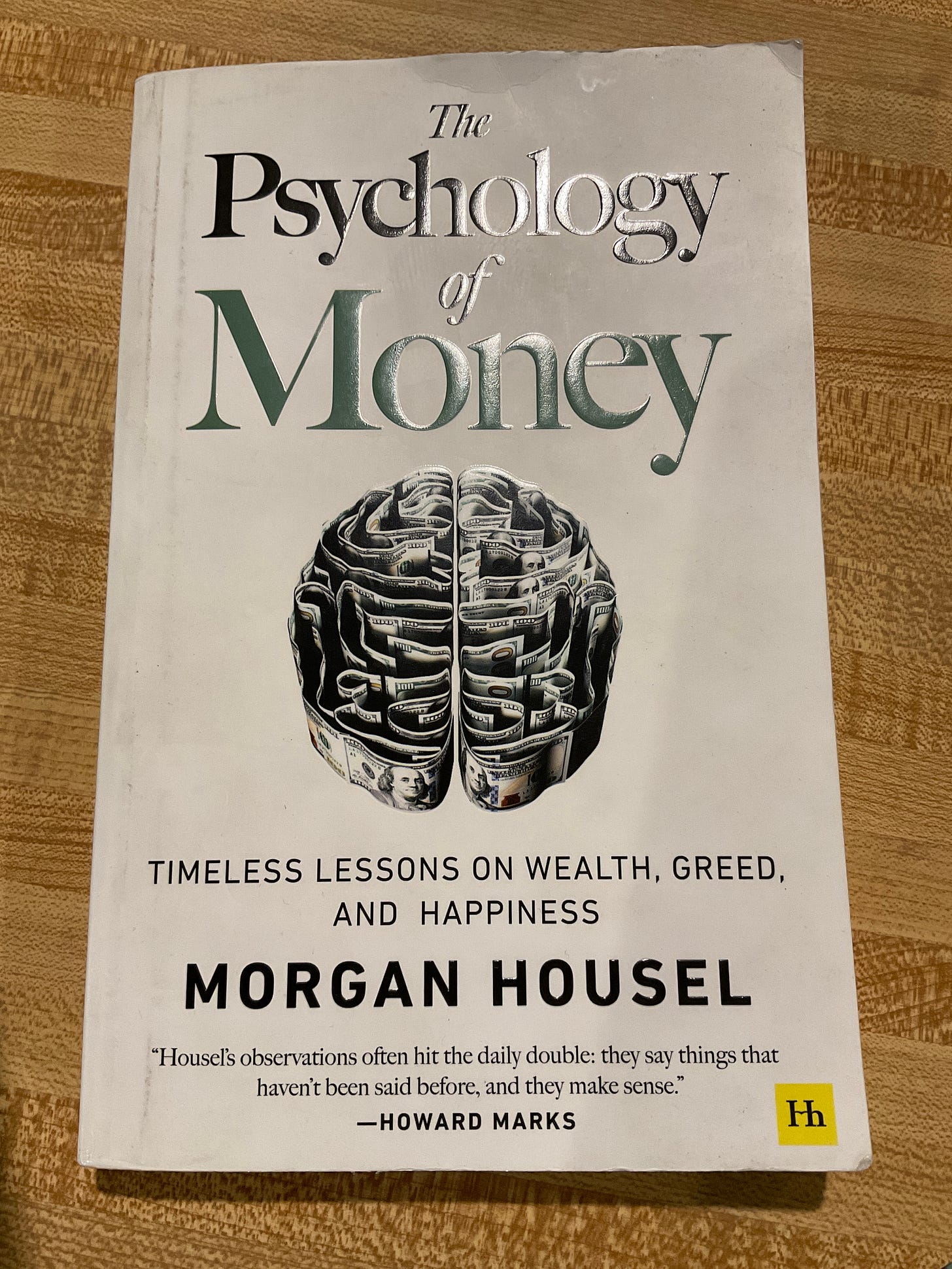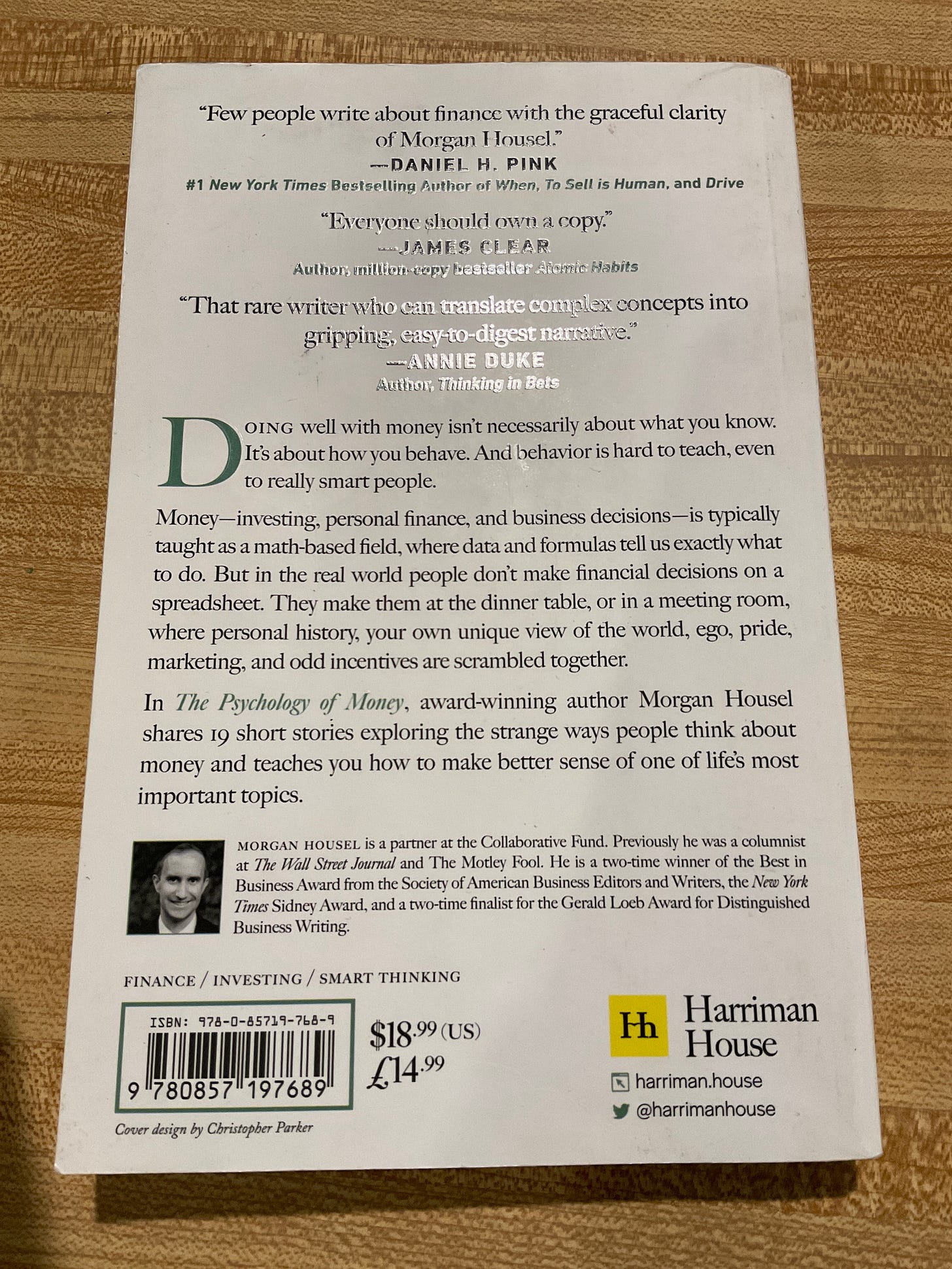Book Review: “The Psychology of Money: Timeless Lessons on Wealth, Greed, and Happiness” by Morgan Housel
How did I get this book?
When I do premarital counselling I almost always encourage the groom to establish the habit of learning, specifically by reading books. It comes when we read 1 Peter 3:7 where Peter instructs husbands to live with their wives in an understanding way. Her quality of life is directly dependent upon his wisdom and courage. I encourage men to get in the habit of reading a book every year on theology, history, philosophy, culture, relationships, sex, and money.
It usually sparks a discussion about where to start and so forth. And, then, occasionally, it opens up an avenue for friendship as we can trade books and insights and recommendations later on. This book came from one of those men. His name is Jeremi.
His experience with money was similar to mine. We didn’t get much from our parents on the topic, so, we’ve had to learn from others. He read this book three years ago, loved it, gave me a copy and it’s sat on my bookshelf till last month. Well, to be fair, it was in a box for a long time because of our move from Canada to the US during the pandemic.
What is it about?
The author has taken on the task of attempting to understand how we as humans, specifically in the US behave around money. He rejects the popular idea that we make cold rational decisions based on numbers. He shows that what influences our decisions is our prior experiences, our feelings, our values, our beliefs about ourselves and the world, in short, it’s far more about psychology than it is about anything else.
And, that’s where he begins to deep dive. He tells true stories that are unforgettable to illustrate the ideas that we typically have. He also goes through great pains to help us think through what we are thinking about when it comes to money. He shows our fallacies and errors. He shows how we are so often self-defeating and misguided to our true goals. He also shows how one solution doesn’t fit all and that’s okay, it’s okay to want different things for different reasons at different stages in life.
What did I think?
The author is insightful. His insights penetrate deeply. They are eye-opening. Brilliant. So, many of us are unwittingly locked in our own head. We haven’t really had the opportunity to consider our behaviours and beliefs around money, drag them out of obscurity and into the light and examine them.
In that vein, this book is profoundly helpful. My friend, Jeremi, was really showing that he was my friend when he shared it with me. Thank you Jeremi!
The author is a huge proponent of saving and investing in index funds. I’m still thinking through that and doing some research. I’m not convinced that our current political and economic situation is stable enough for me to feel comfortable investing in stocks. I understand the concept. I’m just not sure the underlying system is solid.
But, my foray into real estate has been completely disappointing too. Another way to look at it, is to say it’s been a real learning experience.
Conclusion:
At some point in your life, hopefully, earlier rather than later, you’ll want to read this. Money plays an important role in life. It’s not as important as faith in Jesus Christ. But, sadly, it can often compete with Christ for ownership of our life. Recognizing Jesus Christ as Saviour in Lord is the first step. The second step would be to “use worldly wealth for eternal purposes.” To do that, I would suggest that a book like this will help you to think through your experiences, beliefs, biases and feelings around money and give you the opportunity to make some wise decisions going forward.
Don’t wait three years!





